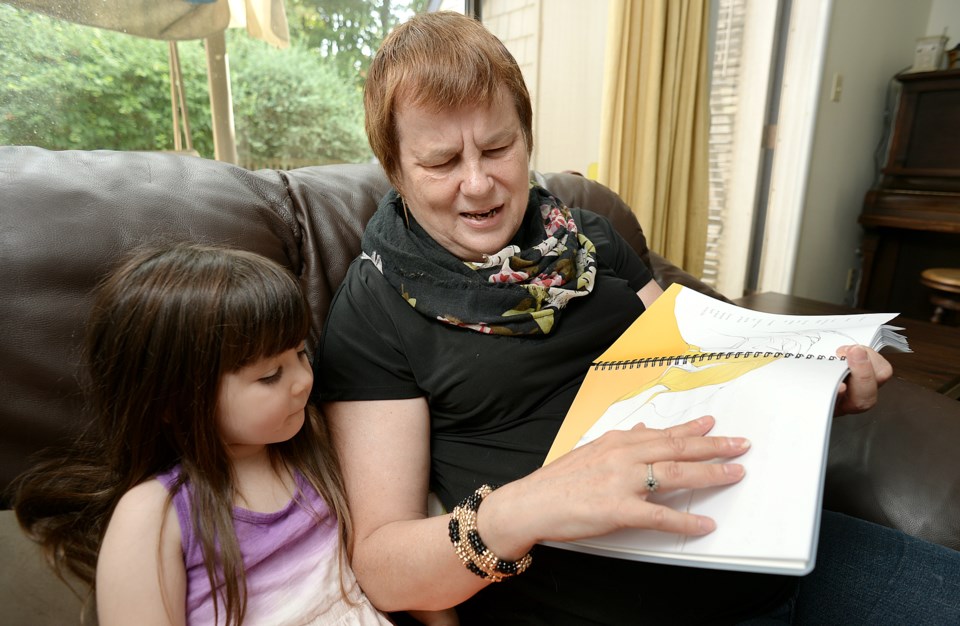Betty Nobel used to have to wait up to five years before she could read the books her friends were reading. Now she’s the one giving them recommendations.
Nobel, in her 60s, is blind. She recently retired after teaching the visually impaired at Vancouver Community College for 33 years. For avid readers like Nobel, the new collection at the Vancouver Public Library allows access to over 200,000 items including books and magazines in audio, e-text and braille.
The collection is accessed through the Centre for Equitable Library Access (CELA), a non-profit founded in May and governed by a board of public library representatives across Canada. It features the nation’s largest alternative format collection. Materials can be mailed or delivered to patrons’ homes by the VPL, as well as downloaded to devices.
“I can sit on a swing in the sunshine and listen to a book,” said Nobel.
Nobel is even able to read picture books to her grandchildren thanks to volumes that have both print braille and visual images.
Recent bestsellers and the latest newspapers can be accessed instantaneously, a huge step from waiting five years for a book.
“It’s important to keep up with what’s in the current,” said Sandra Singh, VPL chief librarian and CELA board member. “They’re important pieces for social inclusion.”
“The connection to the community is important,” said Nobel, who delights in writing book reviews.
The collection launched in June. For many years, VPL Outreach Services contained alternative formats such as audio, described video and braille, but less than a tenth of materials published in Canada was available.
“Imagine if you and nine friends go to the library and there are 10 books on the shelf,” said Singh. “You have a print disability and your nine friends can read any of the books on the shelf that they want to and you can only read one.”
The collection has been a long time coming. The National Library of Canada took action to find alternative formatting as early as 1974 but it took the rise of digital technologies to lead to the idea of a nation-wide hub like CELA’s.
Singh used to work as a cybrarian at Suite101.com, an online learning community based in Vancouver, and remembered Stephen King saying at the time that the future of reading was going digital.
“I don’t think we’ll ever be done with print,” said Singh. “The response to digital is that it’s convenient, there’s no doubt about it. It’s not free, so you still have the kind of shared purpose of librarians where we pool together our resources so that we can all have access to more than we can afford individually.”
The collection is for those who have a print disability, the inability to hold or manipulate a book, a learning disability relating to comprehension or a visual disability.
“It’s a human right and not a charitable endeavor,” said Singh.
Nobel hopes the collection will help those 65 and over who aren’t particularly tech-savvy to experiment with electronic devices.
“I’m probably relatively unique,” she admitted, noting she’s a keen user of tablets, Kindle and audible readers, among other gadgets.
chrischcheung@hotmail.com
twitter.com/chrischeungtogo



